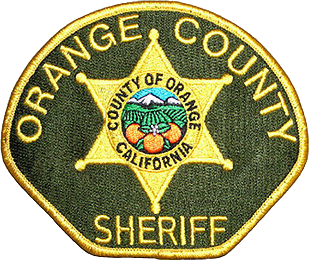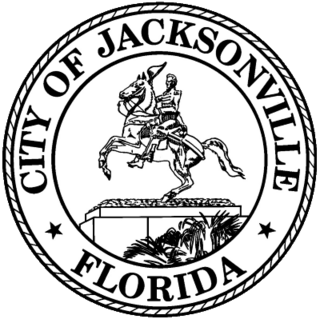The government of California is the governmental structure of the U.S. state of California as established by the California Constitution. California uses the separation of powers system to structure its government. It is composed of three branches: the executive, consisting of the governor of California and the other constitutionally elected and appointed officers and offices; the legislative, consisting of the California State Legislature, which includes the Assembly and the Senate; and the judicial, consisting of the Supreme Court of California and lower courts. There is also local government, consisting of counties, cities, special districts, and school districts, as well as government entities and offices that operate independently on a constitutional, statutory, or common law basis. The state also allows direct participation of the electorate by initiative, referendum, recall and ratification.

Stanislaus County is a county located in the San Joaquin Valley of the U.S. state of California. As of 2023, its estimated population is 564,404. The county seat is Modesto.
A civil township is a widely used unit of local government in the United States that is subordinate to a county, most often in the northern and midwestern parts of the country. The term town is used in New England, New York, as well as Wisconsin to refer to the equivalent of the civil township in these states; Minnesota uses "town" officially but often uses it and "township" interchangeably. Specific responsibilities and the degree of autonomy vary in each state. Civil townships are distinct from survey townships, but in states that have both, the boundaries often coincide, especially in Indiana, Ohio, and Illinois, and may completely geographically subdivide a county. The U.S. Census Bureau classifies civil townships as minor civil divisions. Currently, there are 20 states with civil townships, including Indiana, Ohio, Illinois, Michigan, Iowa, Minnesota, Wisconsin, Missouri, Kansas, Nebraska, South Dakota, North Dakota, Pennsylvania, and West Virginia.

In the United States, a district attorney (DA), county attorney, county prosecutor, state's attorney, prosecuting attorney, commonwealth's attorney, or solicitor is the chief prosecutor or chief law enforcement officer representing a U.S. state in a local government area, typically a county or a group of counties. The exact scope of the office varies by state. Generally, the prosecutor is said to represent the people of the jurisdiction in the state's courts, typically in criminal matters, against defendants. With the exception of three states, district attorneys are elected, unlike similar roles in other common law jurisdictions.

The Orange County Sheriff's Department (OCSD) is the law enforcement agency serving Orange County, California. It currently serves the unincorporated areas of Orange County and thirteen contract cities in the county: Aliso Viejo, Dana Point, Laguna Hills, Laguna Niguel, Laguna Woods, Lake Forest, Mission Viejo, Rancho Santa Margarita, San Clemente, San Juan Capistrano, Stanton, Villa Park, and Yorba Linda.

The government of the City and County of San Francisco utilizes the "strong mayor" form of mayoral/council government, composed of the Mayor, Board of Supervisors, several elected officers, and numerous other entities. It is the only consolidated city-county in California, and one of only thirteen charter counties of California. The fiscal year 2019–20 city and county budget was approximately $12.3 billion.

The Riverside County Sheriff's Department (RSD), also known as the Riverside Sheriff's Office (RSO), is a law enforcement agency in Riverside County, in the U.S. state of California. Overseen by an elected sheriff-coroner, the department serves unincorporated areas of Riverside County as well as some of the incorporated cities in the county by contract. 17 of the county's 26 cities, with populations ranging from 4,958 to 193,365, contract with the department for police services. The county hospital and one tribal community also contract with the department for proactive policing. Riverside County is home to 12 federally recognized Indian reservations. Absent proactive policing and traffic enforcement, the department is responsible for enforcing criminal law on all Native American tribal land within the county. This function is mandated by Public Law 280, enacted in 1953, which transferred the responsibility of criminal law enforcement on tribal land from the federal government to specified state governments including California. The department also operates the county's jail system.

Sheriffs In the United States are the chief of law enforcement officers of a county. Sheriffs are usually either elected by the populace or appointed by an elected body.

The San Bernardino County Sheriff-Coroner's Department (SBSD) serves San Bernardino County, California, which is geographically the largest county in the continental United States and is headquartered in San Bernardino. SBSD provides law enforcement services to the unincorporated areas of the county and contract law enforcement services to 14 of the county's cities, including Rancho Cucamonga and Chino Hills, serving a total of 1,029,466 of the county's 2 million residents. The department also operates the county jail system, provides marshal services for the county superior courts, and has other specialized divisions to serve the citizens of San Bernardino County.

The government of Jacksonville is organized under the city charter and provides for a "strong" mayor–council system. The most notable feature of the government in Jacksonville, Florida, is that it is consolidated with Duval County, which the jurisdictions agreed to in the 1968 Jacksonville Consolidation.

The government of California has an extensive system of local government that manages public functions throughout the state. Like most states, California is divided into counties, of which there are 58 covering the entire state. Most urbanized areas are incorporated as cities, though not all of California is within the boundaries of a city. School districts, which are independent of cities and counties, handle public education. Many other functions, especially in unincorporated areas, are handled by special districts, which include municipal utility districts, transit districts, health care districts, vector control districts, and geologic hazard abatement districts.

The Government of Los Angeles County is defined and authorized under the California Constitution, California law, and the Charter of the County of Los Angeles. Much of the Government of California is in practice the responsibility of county governments, such as the Government of Los Angeles County. The County government provides countywide services such as elections and voter registration, law enforcement, jails, vital records, property records, tax collection, public health, health care, and social services. In addition the County serves as the local government for all unincorporated areas.

The government of the City of Los Angeles operates as a charter city under the charter of the City of Los Angeles. The elected government is composed of the Los Angeles City Council with 15 city council districts and the mayor of Los Angeles, which operate under a mayor–council government, as well as several other elective offices. Under the California Constitution, all judicial, school, county, and city offices, including those of chartered cities, are nonpartisan. The current mayor is Karen Bass, the current city attorney is Hydee Feldstein Soto and the current city controller is Kenneth Mejia.

The government of San Diego County is defined and authorized under the Constitution of California, California law, and the Charter of the County of San Diego. Much of the government of California is in practice the responsibility of county governments such as the government of San Diego County. The County government provides countywide services such as elections and voter registration, law enforcement, jails, vital records, property records, tax collection, public health, and social services. In addition the County serves as the local government for all unincorporated areas.

The government of Alameda County, California, is defined and authorized under the California Constitution, California law, and the Charter of the County of Alameda. Much of the Government of California is in practice the responsibility of county governments such as the Government of Alameda County. The County government provides countywide services such as elections and voter registration, law enforcement, jails, vital records, property records, tax collection, public health, and social services. In addition the County serves as the local government for all unincorporated areas. County services are provided to residents by more than 9,000 employees working in 21 different agencies and departments with an annual budget expenditure of $2.4 billion.
The Government of Sacramento County is defined and authorized under the California Constitution, California law, and the Charter of the County of Sacramento. Much of the government of California is in practice the responsibility of county governments, such as the Government of Sacramento County. The County government provides countywide services such as elections and voter registration, law enforcement, jails, vital records, property records, tax collection, public health, and social services. In addition the County serves as the local government for all unincorporated areas.

The Government of San Joaquin County is defined and authorized under the California Constitution and law as a general law county. Much of the Government of California is in practice the responsibility of county governments, such as the Government of San Joaquin County. The County government provides countywide services such as elections and voter registration, law enforcement, jails, vital records, property records, tax collection, public health, and social services. In addition the County serves as the local government for all unincorporated areas.

The Government of Sacramento operates as a charter city under the Charter of the City of Sacramento. The elected government is composed of the Sacramento City Council with 8 city council districts and the Mayor of Sacramento, which operate under a manager-council government. In addition, there are numerous departments and appointed officers such as the City Manager, Sacramento Police Department (SPD), the Sacramento Fire Department (SFD), Community Development Department, City Clerk, City Attorney, and City Treasurer. Since 2016, the mayor has been Darrell Steinberg and the current councilors were Angelique Ashby, Sean Loloee, Jeff Harris, Katie Valenzuela, Jay Schenirer, Eric Guerra, Rick Jennings II, and Mai Vang.

The Government of Solano County is defined and authorized under the California Constitution and law as a general law county. Much of the Government of California is in practice the responsibility of county governments, such as the Government of Solano County. The County government provides countywide services such as elections and voter registration, law enforcement, jails, vital records, property records, tax collection, public health, and social services. In addition the County serves as the local government for all unincorporated areas.
The Government of Fresno County is defined and authorized under the California Constitution, law, and the Charter of the County of Fresno. Much of the Government of California is in practice the responsibility of county governments, such as the Government of Fresno County. The County government provides countywide services such as elections and voter registration, law enforcement, jails, vital records, property records, tax collection, public health, and social services. In addition the County serves as the local government for all unincorporated areas.
















